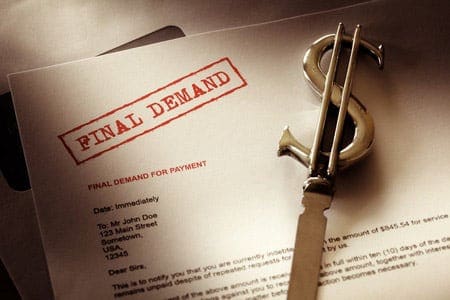Does Borrowing Money from Family Complicate Bankruptcy?
When it comes to filing for bankruptcy, many people have first gone to family for help as their financial problems mount. If you’ve taken a family loan or otherwise received financial help by taking money from family – but your situation has only worsened – what should you do when it comes to bankruptcy?
Should you make an attempt to pay your family back before filing?
Bankruptcy and Family – the Short Answer
There is no advantage in repaying a family member a significant amount of funds shortly before you file for bankruptcy relief.
All creditors must be notified when a bankruptcy case is filed and the creditors must be treated fairly. If you decide to repay a family member shortly before you file your case, then you have chosen to treat that particular family member, who is actually a creditor, better than other similarly situated creditors.

Consider the following example.
Parents choose to lend $3,000.00 to their daughter hoping that it will help her take control of her debt. We will also assume that the parents did not require the daughter to post any collateral for the loan.
Despite her best efforts, the daughter is unable to settle her accounts with her creditors. The daughter decides to file for bankruptcy relief. She thanks her parents for the financial help and repays the $3,000.00 with the tax refund that she received in February. Then, she files her case in March, just one month later.
What the daughter does not realize is that her parents will be negatively impacted by her good intentions.
Why Family Members are Affected When You File Bankruptcy
In most consumer bankruptcy cases, a family member that loaned money to you is considered a general, unsecured creditor.
In our example above, if any money is available for distribution during the daughter’s bankruptcy case, the parents will receive their proportional share of the money. The parents must be treated the same as the daughter’s other general unsecured creditors – typically credit card companies and medical providers, for example.
The daughter’s repayment to her parents during the one-year period preceding the date when she files her case is considered a preferential transfer. The court and trustee will view the daughter as preferring to transfer money to specific creditors before filing her case rather than treating all of her creditors fairly within a bankruptcy case.
The Law When it Comes to Bankruptcy and Family Loans
The United States Bankruptcy Code specifically authorizes the Trustee assigned to a bankruptcy case to claw back the monies that a person pays to a family member within the one-year period prior to the date when the bankruptcy case is filed as long as the aggregate amount repaid totals $600.00 or more.
In our example here, the Trustee will likely sue the parents, acquire the $3,000.00 and distribute funds proportionally to the general, unsecured creditors.
- Reference: Chapter 7 – Liquidation, Subchapter II – Collection, Liquidation, and Distribution of the Estate
The policy behind the Bankruptcy Code is to prevent one creditor from grabbing a chunk of the cash funds from an individual before any other creditors. This promotes a uniform, fair method to address consumer debt.
Help Family Members Understand Your Bankruptcy
Family members that have provided you financial assistance are the last people that you want a bankruptcy case to negatively impact.
You may be thinking: How do I explain to my family member that I cannot repay the money I borrowed right now?
- Explain to the individual that you may repay the money that you borrowed after your bankruptcy case is closed.
- If you repay the money that you borrowed shortly before the case and the Trustee claws back those funds, you and your family member will lose those hard-earned funds.
- And, if you still want to repay the family member, it will now cost twice as much if you make the same error that the daughter made in the example above.
Bankruptcy, Family, and The Bottom Line
Speak with our Harrisburg, Pennsylvania bankruptcy attorneys. Call 877-827-9006 today.
Remember, we want to help and the consultation is free. Make sure that you have truthful conversations with your attorney when you have a consultation and during the period when your case is being prepared.
If you repaid a family member or friend, inform your attorney.
Our attorneys can advise you how a preferential payment can be addressed with your circumstances. Your family may have helped you in the past, now help your family avoid a negative impact by carefully planning how you file your bankruptcy case.
When it comes to repaying family before bankruptcy, contact us before taking any action.
There is no reason financial stress should ruin your life. Talk to our debt relief specialists, the consultation is free Call us today at 877-827-9006 or use our easy-to-complete contact form. Our attorneys will be delighted to speak with you.
Harold Shepley and Associates can Help
Need help with situations of debt and bankruptcy? At Harold Shepley and Associates, LLC, we have the experience you need to deal with situations of debt relief and bankruptcy consultation. We are a full service Law Firm that is client-oriented and will work hard to meet your personal needs in resolving debt.
Call us today at 877-827-9006, or complete our easy to use contact form. We’re ready to help.





